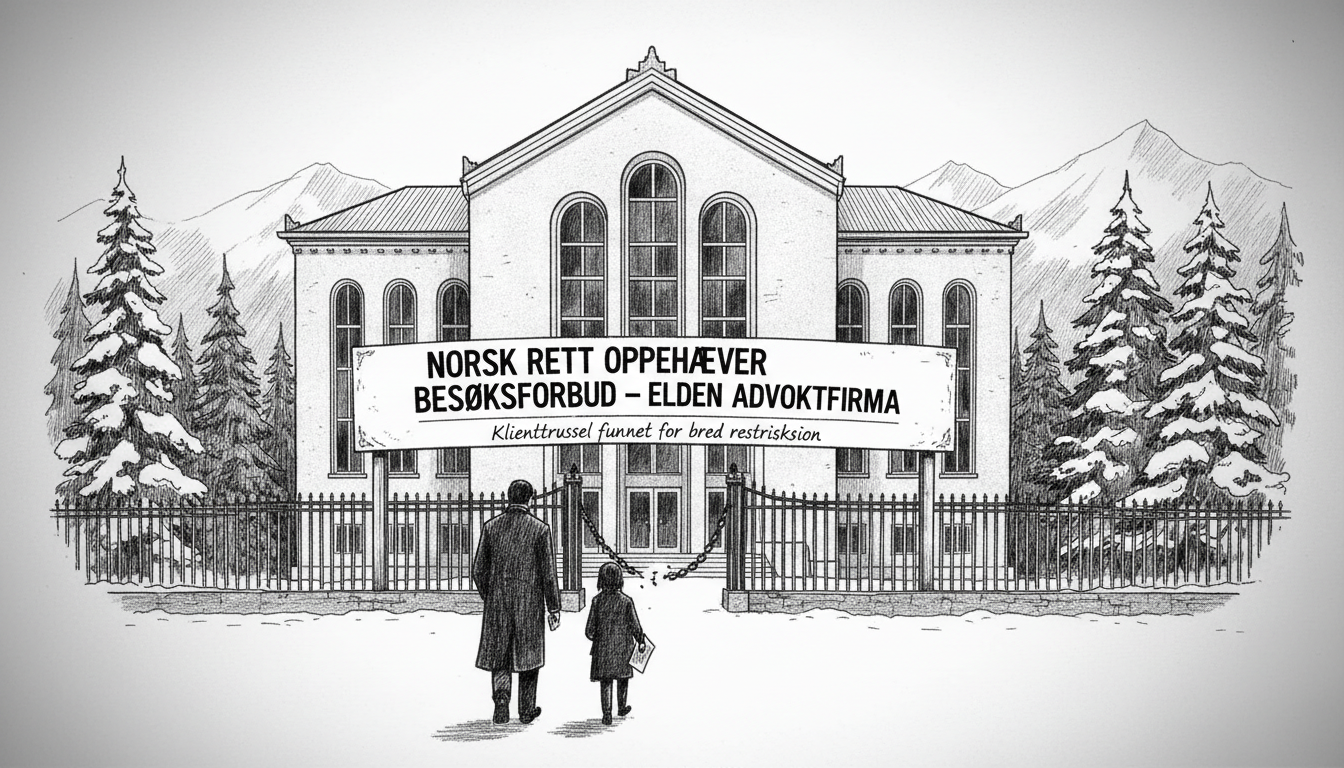A Norwegian appeals court has overturned a controversial visiting ban against one of the country's largest law firms. The case involved a man in his twenties who sought legal representation from Elden law firm in March after being charged with drunk driving. Police records showed the man had a blood alcohol level three times the legal limit when he contacted the Bergen-based firm.
The situation escalated when the man allegedly threatened two employees at the firm's Bergen office. A district court responded by imposing a comprehensive visiting ban prohibiting the man from contacting any of the firm's 150 employees nationwide.
Now, a unanimous appeals court has lifted the restriction entirely. The court found the original ruling lacked proper justification for such a broad prohibition. Judges specifically questioned why the district court failed to explain why protecting only the two threatened employees and their Bergen office wasn't sufficient.
Legal experts note this case highlights Norway's strict standards for imposing visiting bans. The courts typically require clear, specific reasoning before restricting an individual's movements. This protects against overly broad restrictions that could infringe on personal freedoms.
Elden law firm had asked the appeals court to dismiss the case but failed to persuade the judges. The firm declined to comment on the court's decision when contacted by media.
This ruling demonstrates Norway's balanced approach to legal protections. The system aims to protect potential victims while ensuring restrictions remain proportional to actual threats. The court essentially found the original ban went too far without adequate justification.
Norwegian law firms frequently handle sensitive cases involving clients facing serious charges. This creates inherent tensions between client rights and employee safety. The appeals court decision reinforces that courts will scrutinize broad restrictions carefully, even when prestigious firms request them.
The case also shows how Norway's court system provides multiple layers of review. The appeals process allows for correction when lower courts might overreach. This protects both individual rights and the legal system's integrity.
What happens next remains unclear. The man continues facing drunk driving charges separately from the visiting ban issue. The law firm must now determine how to handle his case while maintaining workplace safety through less restrictive means.

